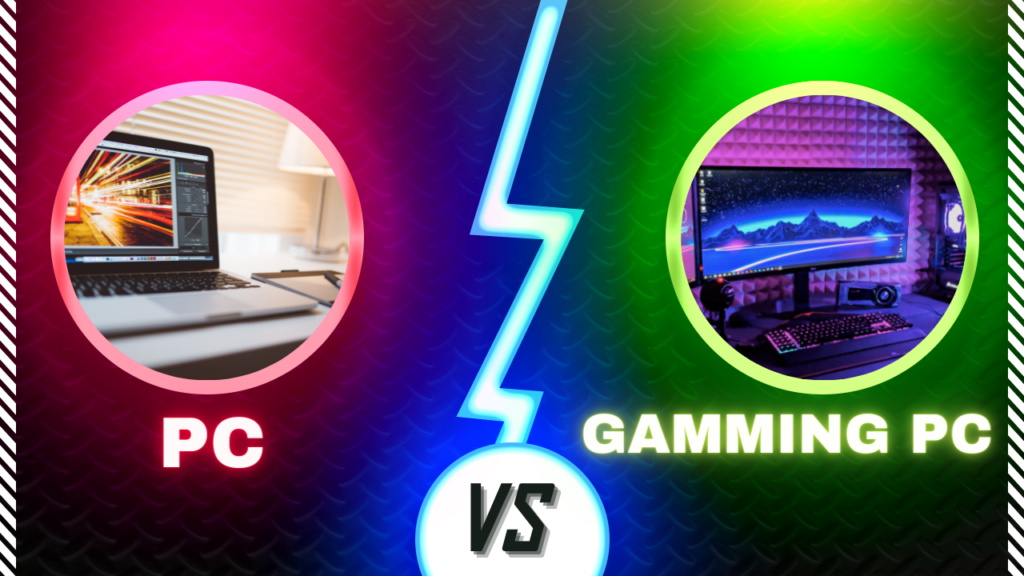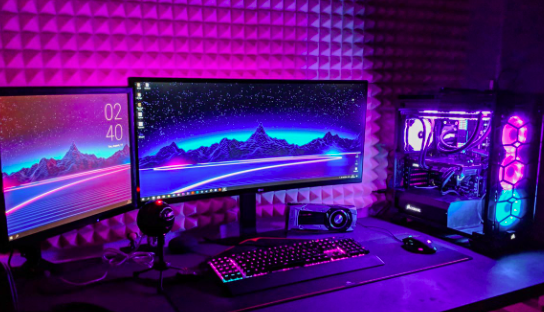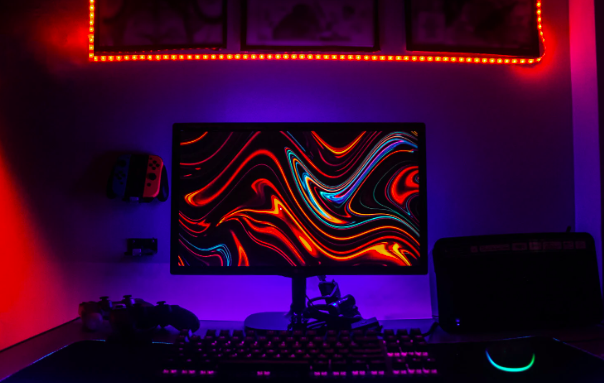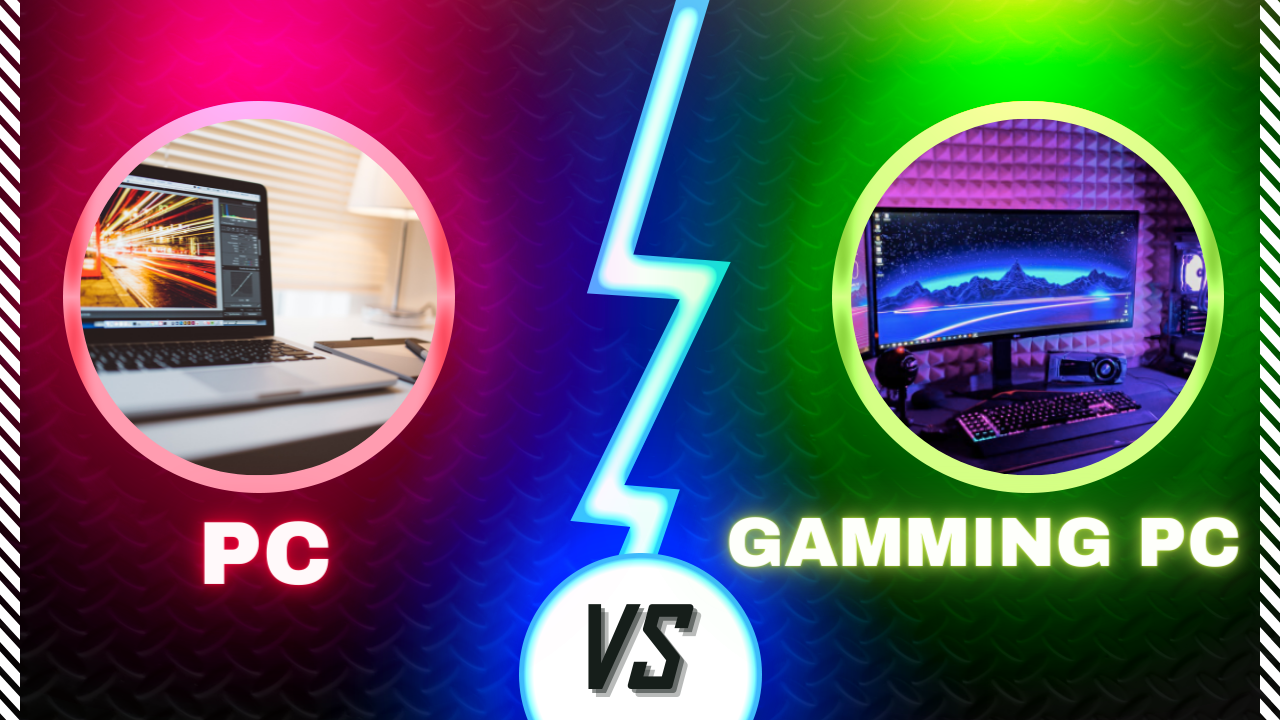
Gaming computers use high-performance CPUs and graphics cards with a high core count and raw power. This is the main difference between PC and gaming PCs. Gaming PCs can also be used for other tasks that require high-resolution graphics, such as B. video editing. This PC can generally be used by a single user at a time and is usually connected to a wide area network or local area network and can use a multi-user operating system. Anything from mainframe computers to a PC connected to a network can be considered a workspace. Gaming PCs, on the other hand, specialize in video games.
Your computer may support games such as Candy Crush and Plant V. Zombies. But what about battle royale games like Apex Legends and Call of Duty? Your average desktop won’t be able to play this game smoothly, and an RPG is much higher. It might support online slot games, but the graphics won’t be as fun and realistic as the trailers. Your 11th Gen Core i9 PC might be fine for AutoCAD designing or coding, but you’ll need a hardware upgrade to play games.
Features of Gaming PC
There is:-
- Seamless and high electrical current to drive the hardware
- Higher RAM for processing
- Graphics
- A demonstration that can be captured and implemented in a high RPG game
A system can be upgraded to have these features. High core value processor, high-performance CPU, latest generation computer, good RAM and graphics card. A regular PC can have it, but gaming needs the best computing power you can lay your hands on.

Difference between a PC and a gaming PC
Audio
You may have seen that companies that supply gaming consoles offer audio headsets that are designed exclusively for gaming. It is important to have a device that can eliminate the multitude of noises. This feature becomes significant in battle royale games.
Audio and graphics are closely related. Graphics are useless without a high-end sound system. An audio device that is not compatible with the game will prevent a smooth gaming experience.
Desktops may or may not have a sound system. Also, 2.1 channels are usually sufficient for watching movies or animations. You can connect via Bluetooth or a USB cable.
Performance
While it may seem counterintuitive when shopping for a PC, performance probably shouldn’t be a factor in your decision. While portable systems once had a reputation for being underpowered when compared to their desktop counterparts, this is no longer always the case.
Modern gaming laptops can be incredibly efficient and powerful. While desktops may still have a performance edge when it comes to high-end components and thermal considerations, the difference is much less pronounced than it used to be.
Performance is mostly comparable, so let’s look at the other factors you’ll want to consider.
Portability
Definitely not a portable desktop. Laptops and desktops may have the same technical specs and features, but laptops are portable. Conversely, a desktop can become less portable if it needs to be upgraded to a gaming desktop. Additional hardware will make the structure more complex. A serious gamer who participates in tournaments and parties should not host a gaming LAN or a normal computer. That’s why gaming desktops already have the necessary hardware installed, making them less clunky and “cabrous”.
It is recommended to use a laptop to play games as it is easy to carry and mobile. Newer technology makes them thinner and more energy efficient.
Customizability
A standard desktop may have limitations and may not be scalable. For example, you may have a motherboard that cannot have more than 16GB of RAM in its slot. However, a game console or computer can be customized and upgraded to increase its computing power.
Apple Macbook Pro made in 2015 can run at the speed of life, but its RAM cannot be as high as 64GB, necessary to participate in online esports games and tournaments.
Display

If we talk about the display, a typical desktop comes with a monitor that has a resolution of 720p and even less and works well for day-to-day tasks. But that’s not enough for games that require a 4k resolution screen to keep the graphics up to date. Gaming computers also have faster frames per second. Otherwise, the screen will freeze from time to time.
The gaming display has an OLED touchscreen, QuadHD, and a G-Sync display. Your typical computer screen might have a 4:3 aspect ratio or full screen display. The world has now adopted the 16:9 aspect ratio for displays, known as widescreen for higher definition and better picture quality.
Cooling System
Previously, large air conditioners were used to cool computer equipment, and semiconductors gave off a lot of heat. Now, the coolant hose does the job for us. A small fan is sufficient in a typical desktop, while a fluid collection tube is used in computer equipment for better performance.
Random Access Memory- RAM
In the past, computing power depended solely on RAM. A typical computer may have 8GB of RAM but works fine with 4GB of RAM. PC games require at least 8GB of RAM first due to a lot of hidden files and memory used for graphics and audio. The RAM must be compatible with the phone’s motherboard. 8GB DDR3 RAM cannot be replaced with 32GB DDR4 RAM. DDR4 or Double Data Rate 4 replaced the first generation of RAM.
Computing Power
The gaming console is equipped with the latest technology. Of course, they need more power than a modern computer. A simple computer can use an incredible amount of energy in comparison. It can consume 1-2 units of energy every 24 hours. Power consumption can reach up to 700 watts for 4K resolution and games like Call of Duty.
FAQ’S
Can you use an all-in-one PC for gaming?
All-in-one PCs can play games; however, it is not advised. Although they will have some restrictions, they can typically handle challenging games. Additionally, they are more difficult to repair when something goes wrong, and replacing parts is difficult. Plus, a smaller screen may make the experience less enjoyable.
What makes a PC a gaming PC?
Gaming PCs often differ from standard personal computers in that they typically have more powerful video cards, more powerful CPUs with a higher number of cores, and more powerful RAM. Gaming computers are also employed for more taxing jobs like video editing.
Does a gaming PC work like a regular PC?
A gaming PC can perform any task that can be performed on a regular computer. On a gaming PC, for instance, you may perform tasks like office work, web surfing, streaming, and homework with better graphics and performance.
Conclusion:
When deciding between a standard PC and a gaming PC, consider your budget, the types of tasks you want to perform, and your gaming needs. A gaming PC offers better performance and graphics but is more expensive, while a standard PC is more affordable but may struggle with demanding tasks. By understanding the differences between the two, you can make an informed decision that meets your needs.

